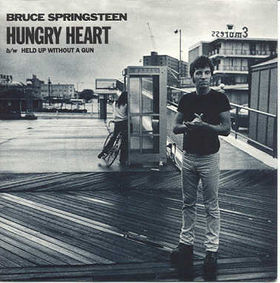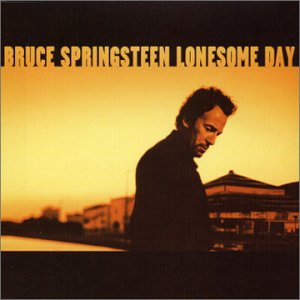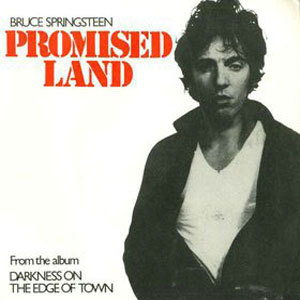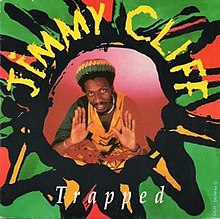
"Rosalita (Come Out Tonight)" is a 1973 song by Bruce Springsteen, from his The Wild, the Innocent & the E Street Shuffle album, and is especially famed as a concert number for Springsteen and The E Street Band. The song, which clocks in at just over seven minutes, is a story of forbidden love between the singer and the titular Rosalita, whose parents disapprove of his life in a rock and roll band. It is included on the compilation albums The Essential Bruce Springsteen and Bruce Springsteen & The E Street Band Greatest Hits. In 2021, Rolling Stone ranked it the 446th greatest song of all time on their updated 500 Greatest Songs of All Time list.

James Chambers, OM, known professionally as Jimmy Cliff, is a Jamaican ska, rocksteady, reggae and soul musician, multi-instrumentalist, singer, and actor. He is the only living reggae musician to hold the Order of Merit, the highest honour that can be granted by the Jamaican government for achievements in the arts and sciences.

The River is the fifth studio album by the American singer-songwriter Bruce Springsteen, released as a double album on October 17, 1980, by Columbia Records. The album was Springsteen's attempt at making a record that captured the E Street Band's live sound. Co-produced by Springsteen, his manager Jon Landau, and bandmate Steven Van Zandt, the recording sessions lasted 18 months in New York City from March 1979 to August 1980. Springsteen originally planned to release a single LP, The Ties That Bind, in late 1979, before deciding it did not fit his vision and scrapped it. Over 50 songs were recorded; outtakes saw release as B-sides and later on compilation albums.

Dave Marsh is an American music critic and radio talk show host. He was an early editor of Creem magazine, has written for various publications such as Newsday, The Village Voice, and Rolling Stone, and has published numerous books about music and musicians, mostly focused on rock music. He is also a committee member of the Rock and Roll Hall of Fame.

"I Can See Clearly Now" is a song written and recorded by American singer-songwriter Johnny Nash. It was the lead single from his twelfth album, I Can See Clearly Now (1972), and achieved success in the United States and the United Kingdom when it was released in 1972, reaching number one on the US Billboard Hot 100 and Cash Box charts. It also reached number one in Canada and South Africa. The song has been covered by many artists throughout the years, including a hit version by Lee Towers that reached no. 19 in the Dutch Top 40 in 1982, and another recorded by Jimmy Cliff for the motion picture soundtrack of Cool Runnings that peaked at no. 18 on the US Billboard Hot 100 in 1993.

"Hungry Heart" is a ballad written and performed by Bruce Springsteen on his fifth album, The River. It was released as the album's lead single in 1980 and became Springsteen's first big hit on the Billboard Hot 100 chart peaking at number five.

"Dancing in the Dark" is a song written and performed by American rock singer Bruce Springsteen. It was the first single released ahead from his 1984 album, Born in the U.S.A., and became his biggest hit, helping the album become the best-selling album of his career.

"Cover Me" is a song written and performed by American rock singer Bruce Springsteen. It was the second single released from his 1984 album Born in the U.S.A.. Springsteen wrote the song for Donna Summer. However, his manager, Jon Landau, decided the song had hit potential, and so he kept it for the upcoming Springsteen album. It has been certified Gold in the US.

We Are the World is a 1985 album that contains USA for Africa's "We Are the World", a superstar charity recording for famine relief efforts in Ethiopia. The album was released on April 1, 1985, by Columbia Records.

"I'm Goin' Down" is a rock song written and performed by American singer-songwriter Bruce Springsteen. It was released on August 27, 1985 by Columbia Records as the sixth single from his 1984 album Born in the U.S.A. The song was recorded with the E Street Band in May 1982 at Power Station studio in New York City, and co-produced by Springsteen, Jon Landau, Chuck Plotkin, and Steve Van Zandt. Although Springsteen had changing ideas about the songs to put on the album, "I'm Goin' Down" was ultimately selected for inclusion.
"Bobby Jean" is a song written and performed by Bruce Springsteen, from his 1984 album Born in the U.S.A. Although not released as a single, it reached number 36 on the Billboard Mainstream Rock Tracks chart.

"The River" is a song written and recorded by Bruce Springsteen, accompanied by the E Street Band, in 1979. The title track of his fifth album, it was a hit single in parts of Europe in 1981; reaching No.24 in Ireland, No. 25 in the Netherlands, and the top 10 in both Sweden and Norway. Its B-side was either "Independence Day" or "Ramrod", depending on the country of release.
"Johnny 99" is a song written and recorded by rock musician Bruce Springsteen, which first appeared on Springsteen's 1982 solo album Nebraska.

"Tunnel of Love" is the title song by Bruce Springsteen from his 1987 Tunnel of Love album. It was released as the second single from the album, reaching number nine on the Billboard Hot 100 chart. Like the first single from the album, "Brilliant Disguise", "Tunnel of Love" reached number one on the Mainstream Rock Tracks chart and reached the top twenty in Canada peaking at number seventeen. The music video received five MTV Video Music Awards nominations, including Video of the Year and Best Male Video.

"One Step Up" is a song by Bruce Springsteen from his eighth studio album, Tunnel of Love (1987). It was released as the third single from the album, following "Brilliant Disguise" and the title track. It reached position #13 on the Billboard Hot 100 chart, #3 on the Adult Contemporary chart in the United States, and #23 in Canada. It also reached #2 on the U.S. Album Rock Tracks chart, giving Springsteen three straight top two tracks from the album. The song was only released as a single in America. One of the unreleased songs from 1980's The River, "Roulette", recorded April 3, 1979, was released as the b-side, using an alternate vocal mixed on April 12, 1980, that would also be used in 1998, when it was chosen for Tracks.

"Tougher Than the Rest" is a song by Bruce Springsteen from his 1987 Tunnel of Love album. It was released as a single in some countries, following "Brilliant Disguise" and the title track, but was not released as a single in the United States. It reached as high as No. 3 on the Swiss charts, and also reached the Top 20 in the United Kingdom, the Netherlands and Austria. While the song is not one of his most popular ones in the USA, it sold much better in the UK and is one of Springsteen's most beloved songs in Europe.

"Lonesome Day" is a song written by Bruce Springsteen and initially performed by Springsteen and the E Street Band. It is the opening track of his 2002 album The Rising. It was released as a single as the follow-up to the title track on December 2, 2002 and reached #36 on the Billboard Adult Top 40 chart, #39 in the UK, and #47 in Sweden. It fared much better on the Adult Alternative Airplay chart, reaching #3.

"The Promised Land" is a song by the American singer-songwriter Bruce Springsteen from his 1978 album Darkness on the Edge of Town. It was released as a single in Europe, backed by another song from Darkness on the Edge of Town, "Streets of Fire", the third single from the album after "Badlands" and "Prove It All Night". "The Promised Land" was also included on the compilation album The Essential Bruce Springsteen. The song has been a staple of Springsteen's live shows since 1978, and has been included on several concert albums and videos. The live album Live/1975–85 includes a 1985 performance of "The Promised Land" from a concert in Los Angeles, California. A performance of the song from a 2003 concert in Barcelona is included on the Live in Barcelona video. A June 28, 2009 live performance in London from the Working on a Dream Tour was included on the London Calling: Live in Hyde Park DVD. The box set The Promise contains video of three live performances of "The Promised Land", a 2009 performance from the Paramount Theater in Asbury Park, New Jersey, without an audience, a 1978 performance from a concert in Phoenix, Arizona, and another 1978 performance from a concert in Houston, Texas. Darren Hanlon covered "The Promised Land" on Play Some Pool, Skip Some School, Act Real Cool. Eddie Vedder has also covered this song live.

"Cadillac Ranch" is a song written by Bruce Springsteen that was first released on Springsteen's 1980 album The River. In 1981 it was released as a single in Europe, backed by "Be True" in France and by "Wreck on the Highway" in the UK. Although it was not released as a single in the US, it did reach #48 on the Billboard Mainstream Rock Tracks chart. A favorite in concert, a live version was included on Live/1975–85. A version was also included on the documentary film Blood Brothers.
"Land of Hope and Dreams" is a 1999 song written by Bruce Springsteen and performed by Springsteen and the E Street Band. After being performed on tour and released on multiple live albums, a studio recording was released for the first time on Wrecking Ball in 2012.

















